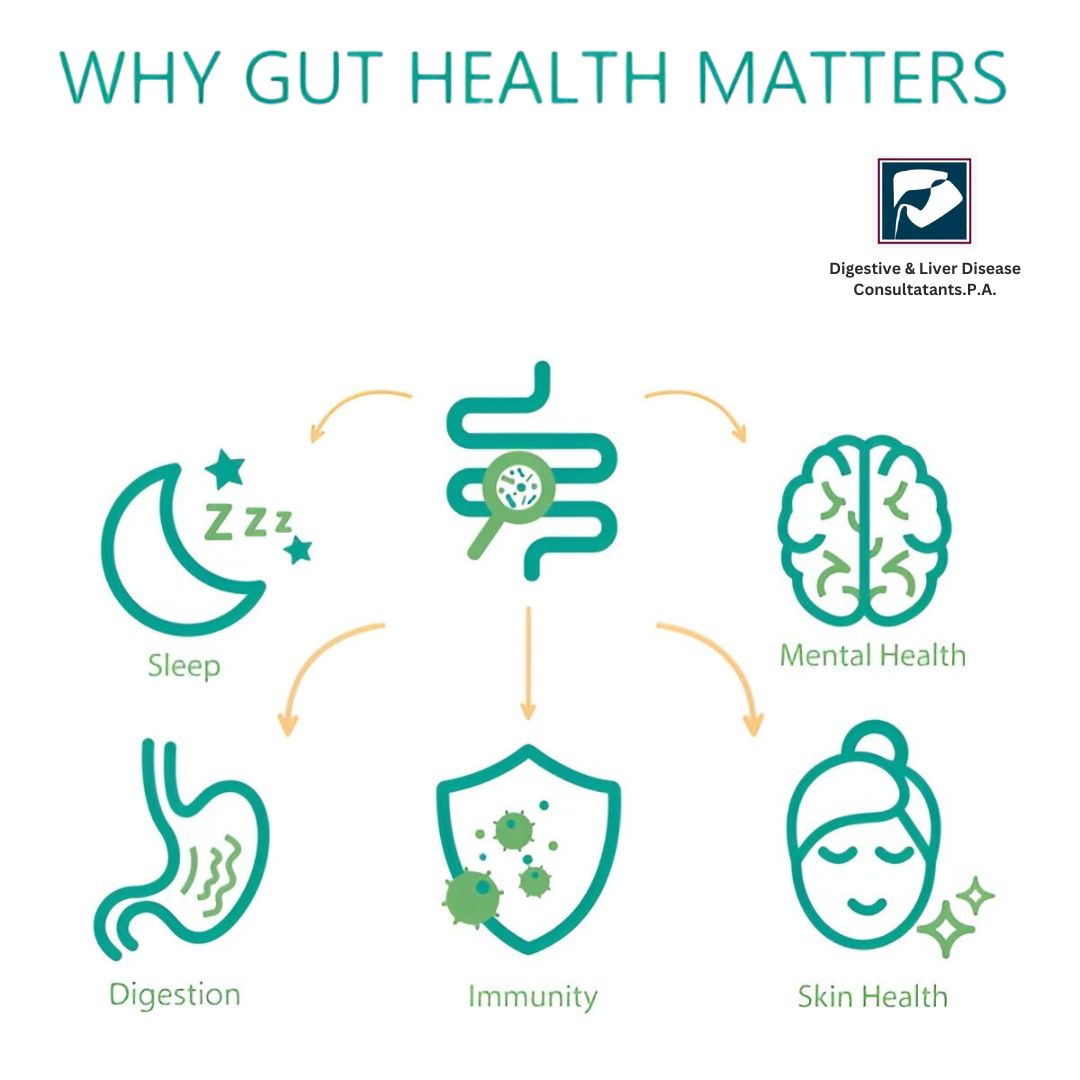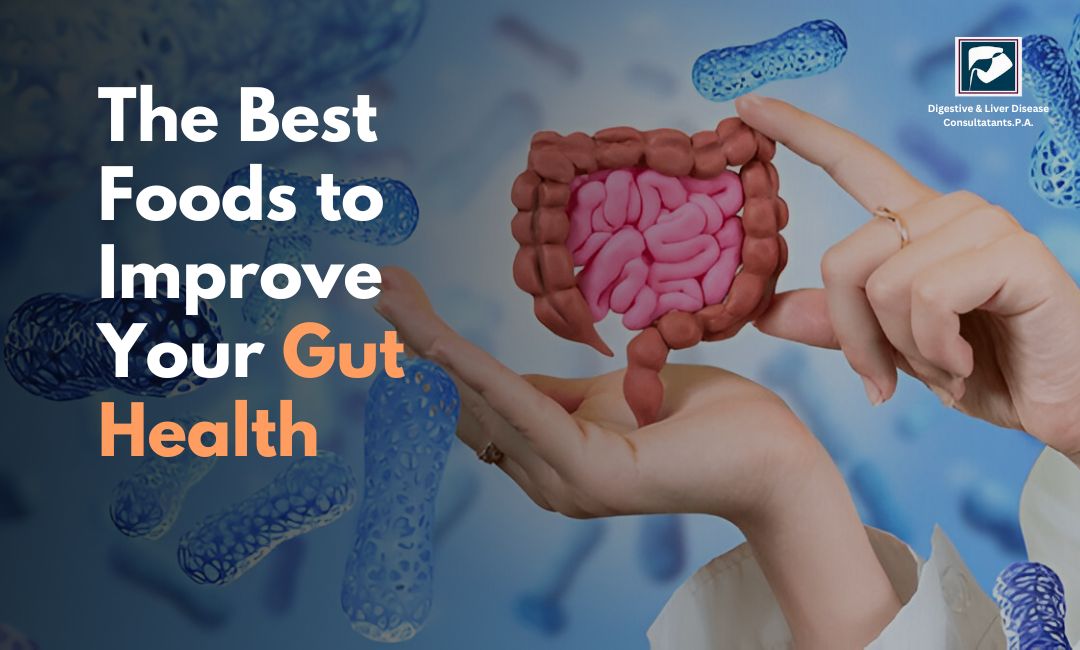When it comes to your overall health, one of the most important areas you should focus on is your gut. Often referred to as your "second brain," your gut plays a critical role in digestion, immunity, and even mental well-being. A healthy gut can help prevent bloating, constipation, diarrhea, and other digestive issues while supporting your body's ability to absorb nutrients. On the flip side, an unhealthy gut can lead to chronic conditions like irritable bowel syndrome (IBS), leaky gut, and even autoimmune diseases.
But here’s the good news: improving your gut health doesn’t have to be complicated or expensive. One of the easiest ways to support your gut is through diet. By incorporating certain foods into your daily meals, you can nourish your gut microbiome—the trillions of bacteria that live in your intestines—and promote better digestive health. In this blog, we’ll explore some of the best foods for gut health and how they work their magic. Plus, we’ll share insights from Digestive & Liver Disease Consultants, P.A., a trusted name in digestive care, to guide you toward optimal wellness.
Why Gut Health Matters
Before diving into the foods, let’s talk about why gut health is so essential. Your gut is home to a diverse community of microorganisms, including both beneficial and harmful bacteria. When the balance tips in favour of harmful bacteria, problems arise. This imbalance, known as dysbiosis, can cause inflammation, weaken your immune system, and disrupt nutrient absorption.
A healthy gut not only aids digestion but also supports your mood, energy levels, and long-term disease prevention. For instance, studies show that a thriving gut microbiome is linked to reduced risks of obesity, diabetes, heart disease, and even depression. So, what can you do to keep your gut happy? Start with food!

The Top Foods for a Healthy Gut
1. Probiotic-Rich Foods
Probiotics are live beneficial bacteria that restore and maintain a healthy gut flora. Think of them as reinforcements for your gut army. Some excellent sources include:
Yogurt: Look for plain, unsweetened yogurt with active cultures. Greek yogurt is particularly rich in protein and probiotics.
Kefir: This fermented milk drink contains more strains of beneficial bacteria than yogurt, making it a powerhouse for gut health.
Sauerkraut: Made from fermented cabbage, sauerkraut is packed with probiotics and fiber.
Kimchi: A spicy Korean staple, kimchi is another fermented vegetable dish loaded with gut-friendly bacteria.
Miso: Often used in soups, miso paste is made from fermented soybeans and adds depth of flavor along with probiotic benefits.
Adding these foods to your diet can help replenish the good bacteria in your gut, especially after taking antibiotics or experiencing digestive upset.
2. Prebiotic Foods
While probiotics introduce good bacteria, prebiotics feed them. Prebiotics are non-digestible fibers that act as fuel for the beneficial bacteria in your gut. Here are some top prebiotic foods:
Garlic and Onions: Both contain inulin, a type of fiber that promotes the growth of healthy gut bacteria.
Bananas: Rich in resistant starch, bananas provide food for your gut microbes.
Asparagus: This veggie is high in fiber and antioxidants, which support gut health.
Chicory Root: Often found in coffee substitutes, chicory root is an excellent source of inulin.
Oats: Whole grains like oats are full of soluble fiber, which helps regulate digestion.
By pairing prebiotics with probiotics, you create a synergistic effect called synbiotics, which maximizes gut health benefits.
3. Fiber-Packed Foods
Dietary fibre is crucial for maintaining regular bowel movements and preventing constipation. It also feeds the good bacteria in your gut. Some fiber-rich options include:
Beans and Lentils: These legumes are not only high in fiber but also rich in plant-based protein.
Berries: Strawberries, blueberries, and raspberries are delicious sources of fiber and antioxidants.
Whole Grains: Brown rice, quinoa, and barley are all great choices for boosting fiber intake.
Nuts and Seeds: Almonds, chia seeds, and flaxseeds are easy-to-add snacks that pack a fiber punch.
Remember, increasing fibre gradually is key to avoiding gas and bloating.
4. Fermented Foods
Fermentation is a natural process that enhances the nutritional value of foods while introducing beneficial bacteria. Beyond yogurt and kefir, consider adding these fermented foods to your plate:
Tempeh: A soy-based product that’s high in protein and probiotics.
Kombucha: A fizzy, fermented tea that’s become popular for its gut-boosting properties.
Pickles: Naturally fermented pickles (not those made with vinegar) offer probiotic benefits.
These foods not only improve gut health but also add variety and flavor to your meals.
5. Polyphenol-Rich Foods
Polyphenols are plant compounds that reduce inflammation and encourage the growth of good bacteria. They’re found in:
Green Tea: Known for its calming effects, green tea is also a gut-friendly beverage.
Dark Chocolate: Yes, chocolate lovers rejoice! Dark chocolate contains polyphenols that benefit your gut.
Red Wine: In moderation, red wine can boost gut diversity thanks to its polyphenol content.
Berries and Nuts: Blueberries, almonds, and hazelnuts are tasty sources of polyphenols.
Including these foods in your diet can complement your gut-healing efforts.
Tips for Supporting Gut Health Beyond Diet
While food plays a major role, there are other lifestyle factors that influence gut health:
Stay Hydrated: Drinking plenty of water keeps things moving smoothly in your digestive tract.
Manage Stress: Chronic stress can wreak havoc on your gut. Practice mindfulness techniques like yoga or meditation.
Get Enough Sleep: Poor sleep patterns can disrupt your gut microbiome, so aim for 7-9 hours of quality rest each night.
Exercise Regularly: Physical activity stimulates digestion and reduces inflammation.
How Digestive & Liver Disease Consultants, P.A. Can Help
At Digestive & Liver Disease Consultants, P.A., our team of experts understands the intricate connection between diet and gut health. We specialize in diagnosing and treating a wide range of gastrointestinal disorders, from IBS and acid reflux to Crohn’s disease and ulcerative colitis. Our personalized approach ensures that every patient receives tailored care based on their unique needs.
If you’re struggling with persistent digestive issues despite making dietary changes, don’t hesitate to reach out. Our board-certified gastroenterologists use state-of-the-art technology and evidence-based treatments to help you achieve lasting relief. From advanced diagnostic testing to nutritional counselling, we’re here to support your journey to better gut health.
Conclusion
Improving your gut health starts with small, consistent changes to your diet and lifestyle. By incorporating probiotic-rich, prebiotic-packed, and fiber-filled foods into your meals, you can nurture your gut microbiome and enjoy improved digestion, stronger immunity, and enhanced overall well-being. Remember, a happy gut means a healthier you!






